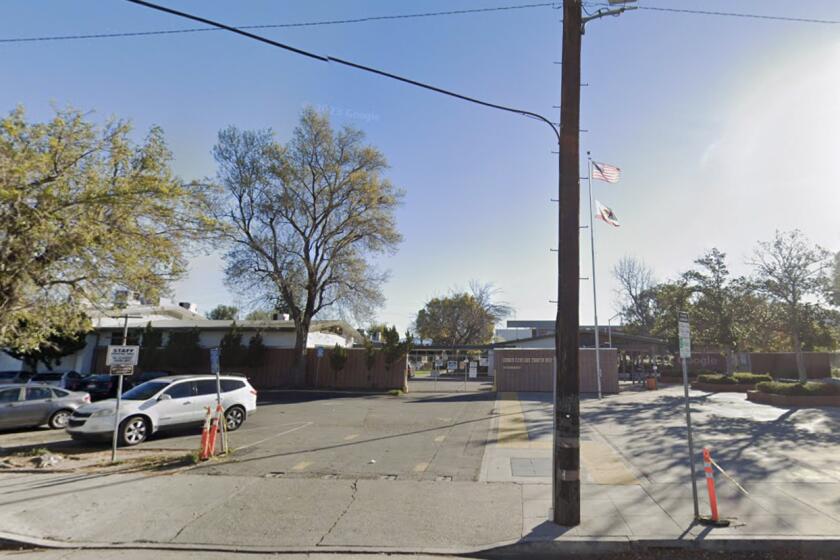Jury says San Diego police did not retaliate against officer who complained about discrimination
San Diego police did not retaliate against a black sergeant who complained about racial discrimination and insensitivity within the department, including the use of a 1909 racist cartoon in a training session, a jury decided Thursday.
Arthur Scott, 45, filed his lawsuit against the city in January 2015, claiming that he was subjected to a hostile work environment and forced to accept an unwanted transfer to another division after he complained about several incidents in 2014 and 2015.
The case went to trial last month.
Attorneys for the city argued there was no proof that Scott, who has been with the department since 2004, was a victim of discrimination or retaliation and that he suffered no harm to his career.
They said Scott was offered the opportunity to start fresh in another division after some missteps, including being at home on multiple occasions when he was supposed to be on duty and allegations that he had mishandled an incident in December 2014 involving a mentally disturbed man armed with a sword.
After the jury’s decision, an attorney for the city said Scott was and continues to be a good officer overall.
“Sgt. Scott has an exemplary record. He was transferred to another division and he’s thriving,” said Deputy City Atty. George Schaefer, reiterating comments he made during the trial.
The Superior Court jury seemed to agree. After a little more than two days of deliberations, the jurors found that Scott reasonably believed he was opposing allegations of racial discrimination or harassment by reporting certain incidents to his supervisors.
But they did not find that he was subjected to “adverse employment action” when he was transferred or when he wasn’t assigned to the department’s domestic violence unit as a detective sergeant.
Steven Conn, the jury foreman, said that while the jurors believed Scott’s allegations against the city and the Police Department were made in good faith, they were not substantiated in court. “We developed a very profound respect for Sgt. Scott,” Conn said. “We do not believe he was doing this for financial gain.”
Among his allegations, Scott claimed that in February 2011 he saw “racist and offensive” images on fellow officers’ lockers, including some that depicted President Obama. When he reported it to a supervisor, he was told he was being “hypersensitive,” but the photos were removed.
Then in May 2014, Scott said, he learned from the commander of the department’s Southeastern Division that he had been told to stop a mural project at the substation because some officers said it depicted “too many black faces.” Scott requested an investigation into the comments, which he believed were offensive.
A few months later, Scott attended a training session at the San Diego Police Museum during which a speaker talked about Frank McCarter, the department’s first black officer. The speaker passed around a copy of a 1909 clipping from a long-defunct newspaper, the San Diego Sun, as part of a lesson on department history. The clipping contained a cartoon depicting McCarter as an “ape-like” caricature along with Chinese men in pigtails running away from the officer, Scott said.
Scott told his supervisor he thought the cartoon was offensive to black and Asian people. The cartoon was pulled from training.
“I feel like the San Diego Police Department did everything right on this issue,” Schaefer said outside the courtroom Thursday.
He said department supervisors acknowledged that Scott was offended by the cartoon and a lieutenant offered him an apology. The purpose of the cartoon in the training session was not to offend, Schaefer said, but to educate trainees on the obstacles McCarter and trailblazers had to overcome.
After the verdicts were read, Scott said that while there are many good officers who serve the community admirably, racism still exists in the department.
“It’s unacceptable,” he said. “We should have a platform to be able to speak out without fear of retaliation.”
Littlefield writes for the San Diego Union-Tribune.
More to Read
Start your day right
Sign up for Essential California for news, features and recommendations from the L.A. Times and beyond in your inbox six days a week.
You may occasionally receive promotional content from the Los Angeles Times.






